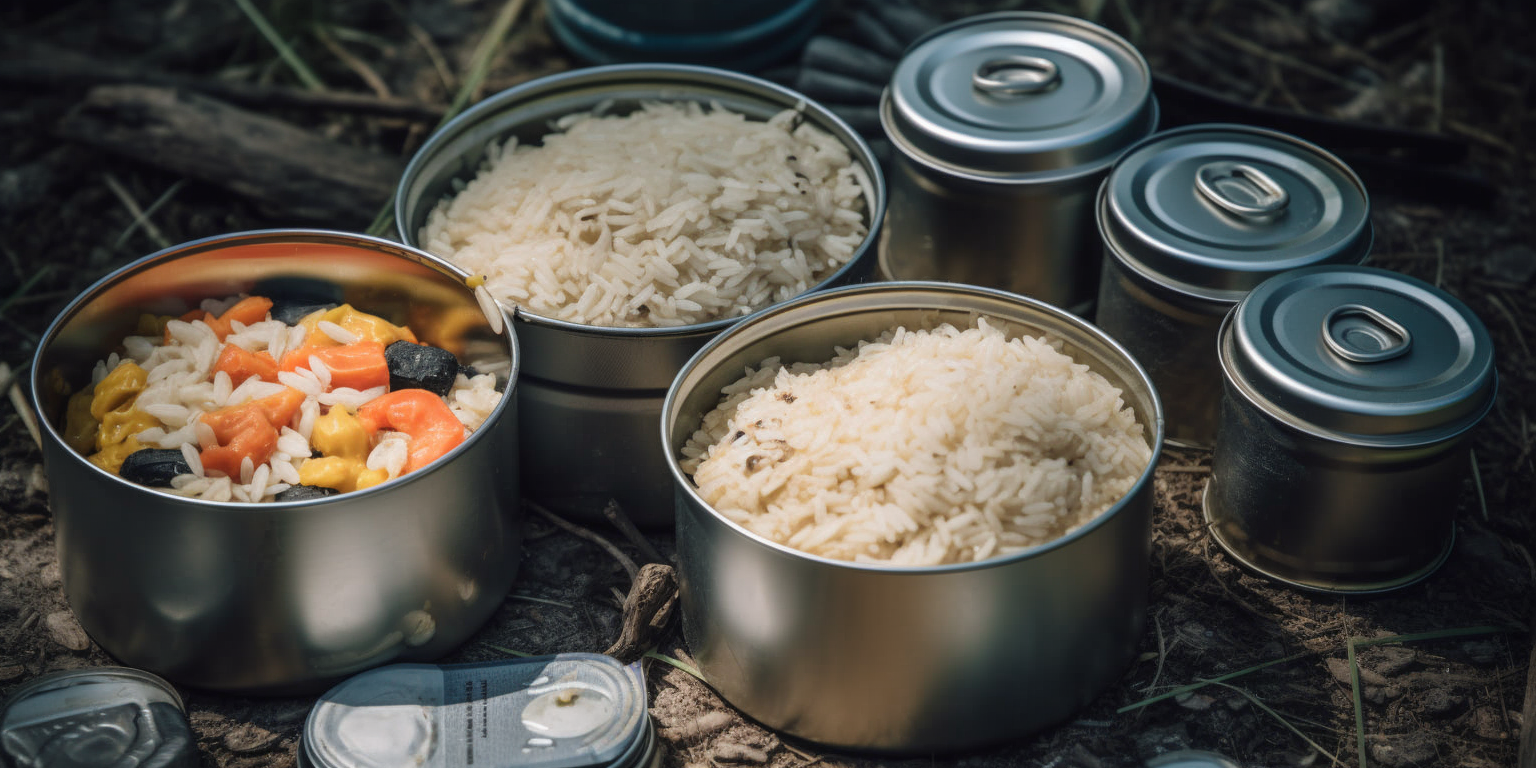
10 Foods That Should Be in Every Emergency Kit
10 Foods That Should Be in Every Emergency Kit
Introduction: Importance of Emergency Kits
No one can predict when an emergency might occur, whether it's a natural disaster, a power outage, or any other unforeseen event. That's why it's crucial to have an emergency kit on hand, which includes essential items like water, first aid supplies, and food. In fact the UK government recommends that households keep at least three days' worth of non-perishable food and bottled water for emergencies. In this article, we'll be discussing ten foods that should be in every emergency kit.
Water: The Essential Item
Water is the most critical item to have in an emergency kit, as it's necessary for survival. The UK government recommends keeping at least one gallon (about 4.5 litres) of water per person per day for a minimum of three days. It's best to store water in clean, airtight containers and replace it every six months.
Canned Foods: Shelf-Stable and Nutritious
Canned foods are an excellent addition to any emergency kit, as they're shelf-stable and can provide essential nutrients. In a survey conducted by the Royal Society for Public Health, canned foods were ranked as the third most popular food item to include in an emergency kit, after bottled water and dried foods. Examples of canned foods to consider include canned fruits, vegetables, meats, and fish. Make sure to choose low-sodium options and rotate your stock regularly to ensure freshness.
Dried Fruits and Nuts: Long-Lasting and High in Energy
Dried fruits and nuts are perfect as they're long-lasting, require no refrigeration, and provide a good source of energy. They're also easy to pack and carry, making them an excellent option for on-the-go snacking. Examples of dried fruits and nuts to consider include raisins, apricots, almonds, and walnuts.
Energy Bars: Convenient and Portable
Energy bars are a convenient and portable food option for emergency kits. They're packed with nutrients and are perfect for when you need a quick energy boost. Look for bars that are low in sugar and high in protein and fibre. Some popular brands include Huel Bars, RX Bars, and Clif Bars.
Peanut Butter: Versatile and High in Protein
Peanut butter is an excellent food to include in an emergency kit, as it's versatile, high in protein, and has a long shelf life. It's perfect for spreading on crackers, bread, or eating on its own. Look for all-natural peanut butter that doesn't contain added sugar or preservatives.
Crackers: Easy to Store and Non-Perishable
Crackers are an excellent addition, as they're easy to store, non-perishable, and can be eaten on their own or with spreads like peanut butter or cheese. Look for crackers that are low in sodium and have a long shelf life.
Instant Soup Packets: Warm and Comforting
Instant soup packets are perfect for emergency kits, as they're warm, comforting, and easy to prepare. They're also a good source of nutrients and can be a great way to keep you hydrated. Look for low-sodium options and make sure to check the expiration dates.
Chocolate: A Treat and a Boost of Energy
Chocolate is great to include, as it's a treat that can provide a quick boost of energy. Look for dark chocolate that has a high percentage of cocoa and is low in sugar. Keep in mind that chocolate can melt, so it's best to store it in a cool, dry place.
Tea Bags: A Warm Drink for Comfort and Hydration
Tea bags are an excellent addition, as they provide a warm drink for comfort and hydration. They're also easy to store and have a long shelf life. Look for herbal teas that don't contain caffeine, as caffeine can dehydrate you.
Conclusion: Being Prepared for Emergencies
Having an emergency kit on hand is essential for being prepared for emergencies, and food is a crucial component of any emergency kit. When selecting food items to include in your kit, it's important to choose items that are shelf-stable, non-perishable, and provide essential nutrients. With the ten food (and drinks) listed in this article, you can be confident that you'll have a variety of options to sustain you during an emergency.
However, it's also important to remember to regularly check the expiration dates of the food items in your emergency kit and replace them as necessary. Additionally, make sure to store your emergency kit in a cool, dry place that's easily accessible.
By being prepared with an emergency kit that includes essential items like food and water, you can help ensure the safety and well-being of yourself and your loved ones during an emergency.
Suggested Articles
How to Balance Taste and Nutrition in Adventure Food Planning
Embarking on an outdoor adventure, whether it's a multi-day hiking trip, camping, or a kayaking journey, requires mor...
Cooking with Freeze-Dried Foods: Creative Recipes for Camping and Emergency Situations
Freeze-dried foods have revolutionized the way we approach cooking in outdoor and emergency scenarios. These lightwei...
The Pros and Cons of Pre-Packaged Adventure Foods: Which Ones to Choose
Embarking on an outdoor adventure requires careful planning, especially when it comes to nutrition. Pre-packaged adve...




